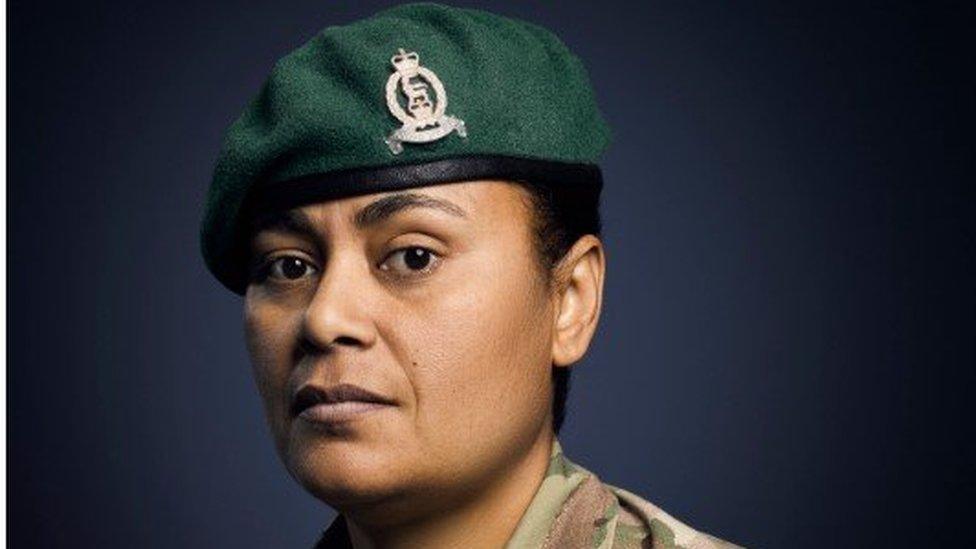NHS veteran mental health service 'rebuilding lives'
- Published
Former soldier Simon Brown on the battle for mental health
An ex-soldier shot in the Iraq war has said a new service providing trauma support to veterans will help hundreds "find their place in society".
Since its introduction in April, more than 200 people have been referred to the NHS's Veterans' Mental Health Complex Treatment Service (CTS).
It deals with issues such as substance abuse, relationship problems and post-traumatic stress disorder (PTSD).
Simon Brown, who lost almost all his vision, said it was "rebuilding lives".
The service gives a range of intensive care and treatment for people with military-related complex mental health difficulties, many of whom will have experienced trauma.
More news stories across Yorkshire here
It aims to provide a first appointment within two weeks after a referral to the service, with the CTS funded to see about 900 patients by the end of March 2020.

Complex Treatment Service providers
• Leeds and York Partnership NHS Foundation Trust (North of England)
• St Andrew's Healthcare (East Midlands and East of England)
• Birmingham and Solihull Mental Health NHS Foundation Trust (West Midlands)
• Camden and Islington NHS Foundation Trust (London and the South East)
• Berkshire Healthcare NHS Foundation Trust (Buckinghamshire, Oxfordshire, Berkshire, Hampshire, Isle of Wight and the South West)

Mr Brown, a Corporal in the Royal Electrical and Mechanical Engineers, was shot in the head in Basra in 2006 after going to repair a military vehicle that was under fire.
The 39-year-old from Leeds lost one eye completely and 80% of the vision in the other when a bullet hit his skull, shattering both of his cheekbones.
"You come back and you've been through this absolute horror and the world has moved on without you - it didn't need you," he said.
"I couldn't talk about what I'd been through and what I'd done because I didn't know how to. The slightest trigger would take you back there."

He was diagnosed with PTSD in 2007, which he traced back to seeing mass graves while serving in Kosovo in 1999.
He said: "I was angry and upset and I felt cheated - I fought so hard to stay alive on the battlefield and this was my reward, where's the justice in that?
"For a long time my focus was completely on what I'd lost, I don't know whether it was courage or fear that stopped me taking my own life at that point."
Mr Brown did not receive any mental health assistance after serving in Kosovo at the age of 20 and said he relied on family for support and eventually asked the Army for help.
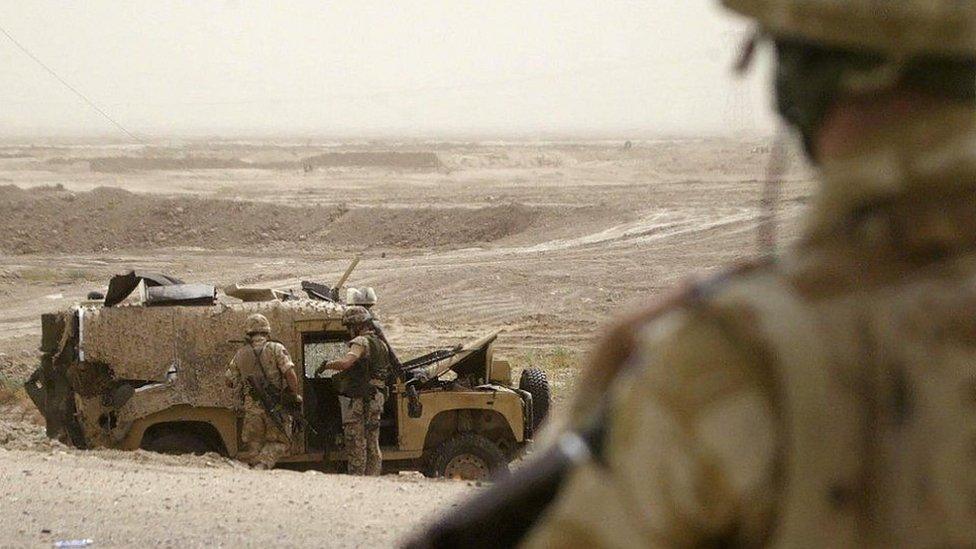
The service was established to help veterans requiring intensive support for mental health problems
The NHS Veterans' Mental Health Transition, Intervention and Liaison Service offers an assessment of all mental health needs, external when an individual ends active duty, with GPs now having the option of referring them to the CTS.
Mr Brown said: "There's millions of people out there who have been in these conflicts, sitting there quietly getting on with lives, but some of them are struggling. Now there's a really good service to help them.
"It means people don't have to go what I went through to find their place in society and rebuild a better life after going through severe traumatic experiences."

What is PTSD?
Post-traumatic stress disorder is an anxiety disorder caused by stressful, frightening or distressing events
People with the condition often experience the event again through flashbacks and nightmares, with other symptoms including problems with sleep and concentration
Events that can cause PTSD include violent personal assaults including sexual assault, military combat, road accidents, witnessing violent events and natural disasters
It can develop immediately after the disturbing event but can also occur many years later
PTSD is thought to affect one in every three people who have a traumatic experience

Dr Lawrence Atkins, of Leeds and York Partnership NHS Foundation Trust CTS, said: "Historically there have been pockets across the country where the NHS has provided a variety of different mental health services for veterans, but that has very much depended on where in the country you live.
"We see veterans who are struggling to adjust to civilian life with depressive and anxiety symptoms, people with difficulty with alcohol and various other substances, a real range of mental health conditions."
The Ministry of Defence said: "We take the mental wellbeing of our people extremely seriously and we encourage anyone struggling to come forward and access the care they deserve."
- Published8 October 2018
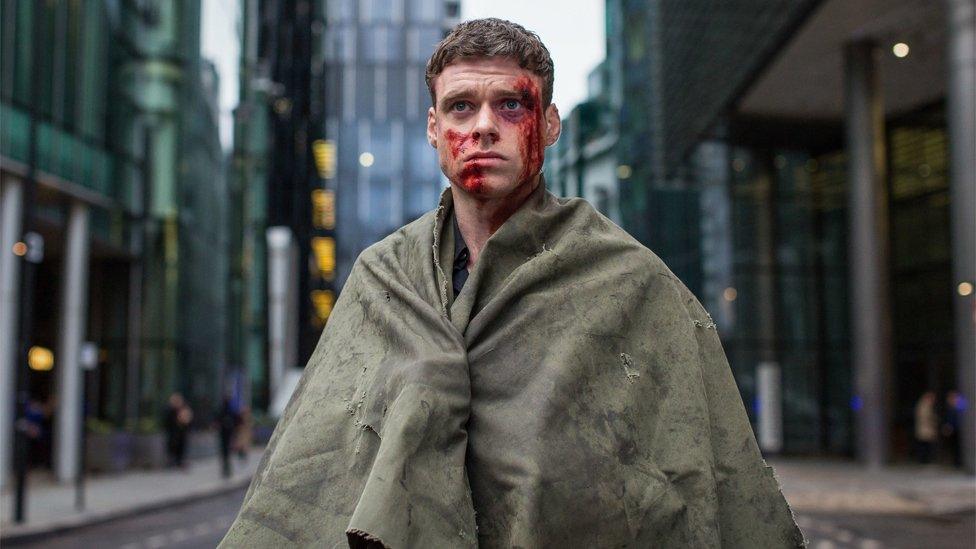
- Published17 August 2018
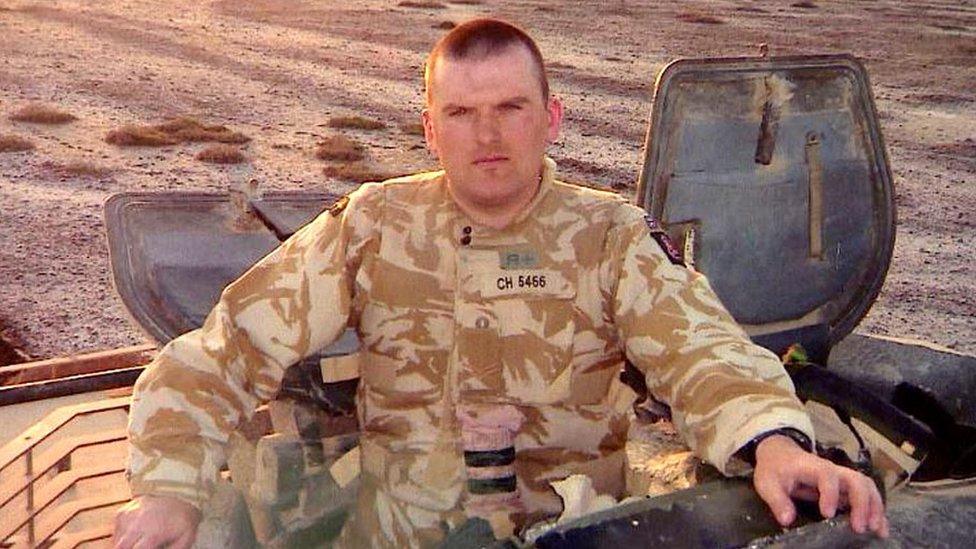
- Published25 February 2018
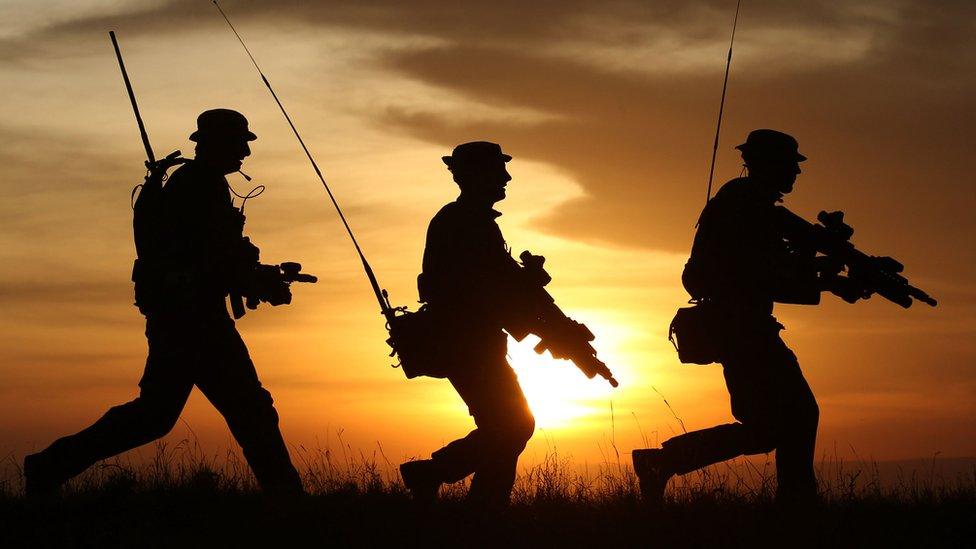
- Published3 February 2018
